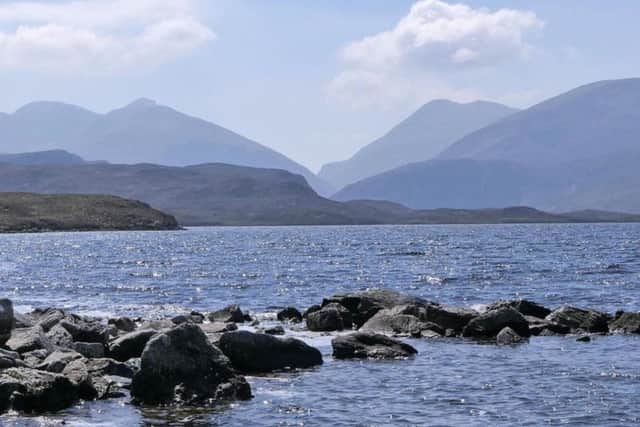Rare recordings of Gaelic in it "purest form" are saved
Tapes made by a congregation on Lewis in the 1980s will be digitally preserved for all time.
It was felt important to save the tapes given the quality of the speaker's Gaelic with it hoped the recordings will become a valuable resource for Gaelic students, speakers and learners.
Advertisement
Hide AdAdvertisement
Hide AdThe recordings feature the congregation of Knock Free Church, now merged with Garrabost Free Church, reciting the New Testament.


Forty sets of 17 tapes were produced and were sent all over the world to those who had left the islands. They will now be made available to a wider audience both online and in CD format once the restoration is complete.
Mr Murray, from Upper Bayble in Point, said: “It’s a great resource and the value to students of Gaelic can’t be overstated. It’s a rich archive of native Gaelic reading and it’s a resource that we don’t want to lose.
"The recordings were made at a time when Gaelic was the prominent language and the speakers on the tapes were all native Gaelic speakers.
"The Gaelic Bible was not been translated from the English but was instead translated directly from the original Greek and Hebrew.
"“It is the higher register of Gaelic. It’s your classical Gaelic and it’s probably Gaelic in its purest form.”
Mr Murray said it would have been " a lot easier" to make new recordings but added it was important not to lose the work that had already been done.
He added: We want to preserve that resource because of the nuance of the pronunciation that people have. There’s an authenticity about it. At the time it was recorded, you had native speakers who were skilled in the reading of the Gaelic Bible and we wouldn’t have that today.
Advertisement
Hide AdAdvertisement
Hide Ad“We could have left it to history and made a new one but we thought this was important to preserve.
“It was a very successful and innovative project for its time. It took months. They really did well and it’s worthy of being preserved.”
Gaelic development agency Bòrd na Gàidhlig awardedthe project £3,200 from its Taic Freumhan Coimhearsnachd (Community Roots Support) fund and the remainder was sought from Point and Sandwick Trust.
Donald John MacSween, General Manager of Point and Sandwick Trust, said: “This is a project of immense cultural importance to our Gaelic community and the recordings, once digitised, will be of huge value to those Gaelic speakers who can no longer get out to church or who are unable to read their own Gaelic Bibles.
"The original project was inspired and we are pleased to have been able to help safeguard this resource for future generations. These recordings are community treasures.”
The technical work is to be done by Donald Macleod, beginning with the digital recording of the taped readings, which can only be done in real time. They will then be cleaned up – removing the coughs, splutters and a background hiss – before being arranged into sound files of chapters.
Where sections are missing or otherwise need redone, they will be reread – by original speakers if possible — and recorded again.
The original readings were recorded inside Knock Free Church, using the pulpit microphone or the precentor’s box microphone.
Advertisement
Hide AdAdvertisement
Hide AdFor some of the original readers, it is exciting to learn the old readings are to get a new lease of life.
Donald Macleod, one of the original readers, welcomed the restoration of the recordings and said the Gaelic text is “more expressive” than the English.
He said: “I think more of it now than I did at the time because now I realise the Gaelic isn’t used so much in church as it used to be. People will still benefit from it as well.”
At the time the recordings were made, the tapes went all over to the world to islanders who had emigrated to countries such as South Africa, America, Australia.